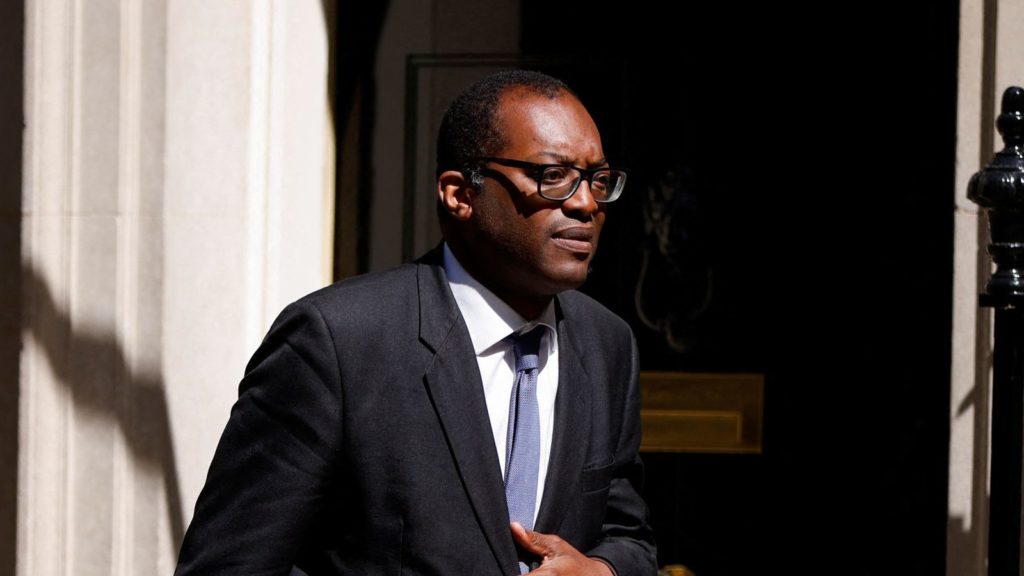‘Strong argument’ interest rates should have been hiked sooner, business secretary says | Business News

Business Secretary Kwasi Kwarteng has said there is “strong argument” that the Bank of England should have raised interest rates “slightly sooner”.
Mr Kwarteng was speaking on Sky News the day after the bank raised rates from 1.25% to 1.75% in an effort to get a grip on inflation, which has soared to 9.4% and is forecast to reach 13% later in the year.
He said: “There is an argument – and I think it’s a strong one – to say that inflation was an issue that was identified at the beginning of last year.
“The job of the bank was to deal with the inflation. They have got a 2% inflation target. That’s actually their mandate.
“And now inflation is hitting double digits.
“So, clearly something has gone wrong and I think there is an argument to suggest that rates should have probably gone up slightly sooner.”
Bank of England Governor Andrew Bailey told the BBC in response: “There are some points that, yes, I will say: ‘I’m sorry, I don’t agree with that point’.
“If you go back two years… given the situation we were facing at that point in the context of COVID, in the context of the labour market, the idea that at that point we would have tightened monetary policy, you know I don’t remember there were many people saying that.”
Read more:
UK economy to be in recession for more than a year, Bank of England warns as it hikes rates
Two indicators slowdown already under way after Bank of England warns of 15-month recession
Why is the Bank of England adding to my bills by raising rates?
The biggest rates hike since 1995 on Thursday will increase costs for millions of borrowers but Mr Bailey told Sky News that the pain was necessary to prevent even worse in the future.
He said: “The reason we’re doing it is because if we don’t get inflation under control, if we don’t bring it down from where I’m afraid it has got to go up to because of this huge energy shock that we’re having, if we don’t bring it down then the damage, the distress, will be even greater.”
He added: “If we have more persistent inflation, that’s harder for everybody – we’ll have to raise rates by more and those particularly on lower incomes will be even more affected.”
Shrinking labour force
Much of the inflationary pressure is coming from energy prices, which are forecast to remain high into next year thanks mainly to Russia’s invasion of Ukraine.
This would lead to the conclusion that there is little that can be done from within the UK, but Mr Bailey said that the energy situation was not the only problem facing the economy.
“The main pressure is external and that’s going to feed into inflation, I’m afraid, over this winter.
“We do think it’s going to come down going through next year and beyond, but we have got another thing going on, which is domestic.
“The labour force has shrunk – there are fewer people working in the economy.”
He said firms around the country were telling him they could not hire enough staff and he said that “of course this does have an upward effect on costs”.







Recent Comments